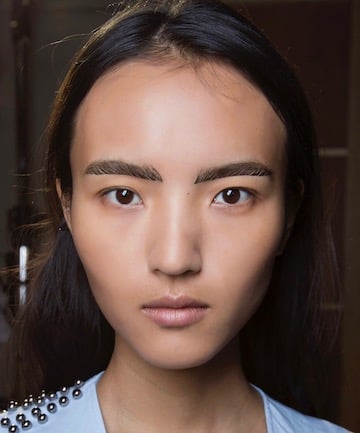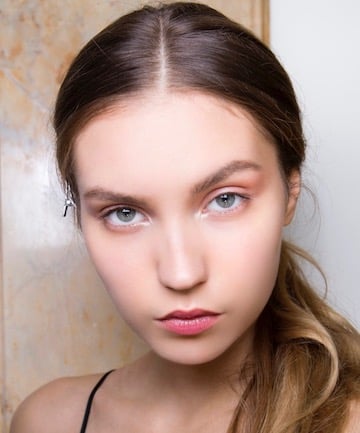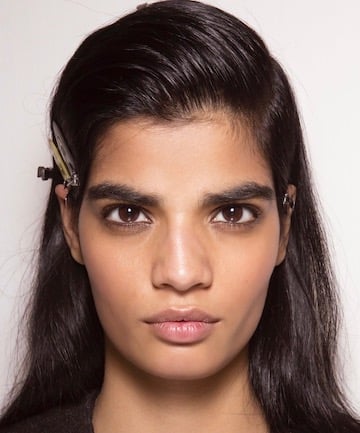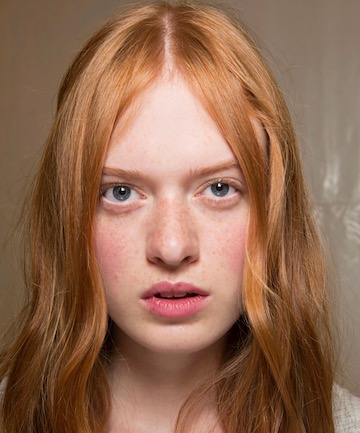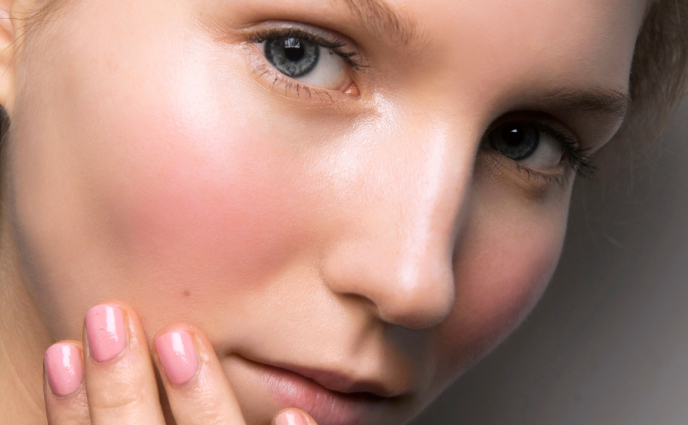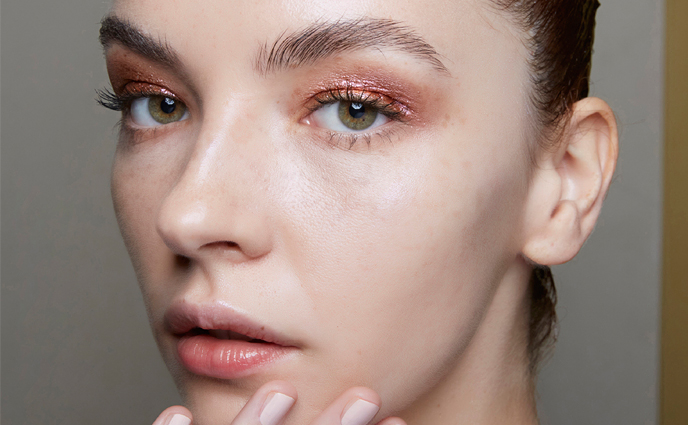The most common signs of scalp acne include pimples or bumps on your scalp, irritation, redness, crusting and greasy flaking (like dandruff). Less common symptoms, which are the result of more serious forms of scalp acne, include pus, scarring and hair loss.
If you have any of these symptoms and are unable to gain control, it's important to speak with a dermatologist. They can create a customized treatment plan to reduce symptoms and provide relief.
Image via Imaxtree
Palm says the causes are still not entirely understood. Although there are some potential triggers. Those include excessive scalp sweating, the use of some hair products or a history of acne.
"Avoid applying products with excess oil and make sure to wash your scalp regularly," advises Dr. Iris Rubin, board certified dermatologist and founder of SEEN, a line of hair products for acne-prone skin. "Also make sure your hair products are noncomedogenic. It turns out hair care products can leave a residue, or an invisible film on your scalp, which has the potential to clog pores and cause acne or breakouts."
Image via Imaxtree
If you're dealing with a mild to moderate case of scalp acne, you may want to try some over-the-counter options. Using skin-friendly hair formulations can help maintain a healthy scalp. Palm's top choice for a medicated shampoo? DHS SAL Shampoo, $9.60. It contains salicylic acid to gently exfoliate your scalp and improve clarity.
Or opt for an anti-residue or chelating shampoo, especially if you use styling products. Neutrogena Anti-Residue Shampoo, $8.78, gently strips product buildup.
You can also do a pre-shampoo rinse like Sunday Riley Clean Rinse Clarifying Scalp Serum, $48. It's meant to be applied directly to your scalp via a handy narrow nozzle. It also contains rose clay, which acts as a mild astringent. You should also be mindful of which styling products you use. SEEN Blow-Out Creme, $24, provides heat protection, control and shine without clogging your pores.
Image via Imaxtree


